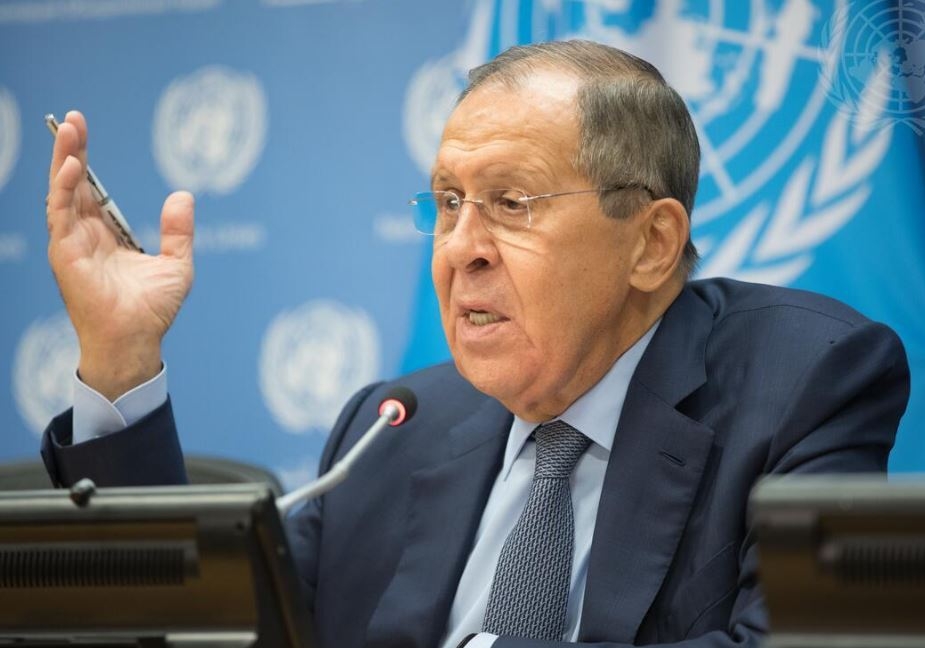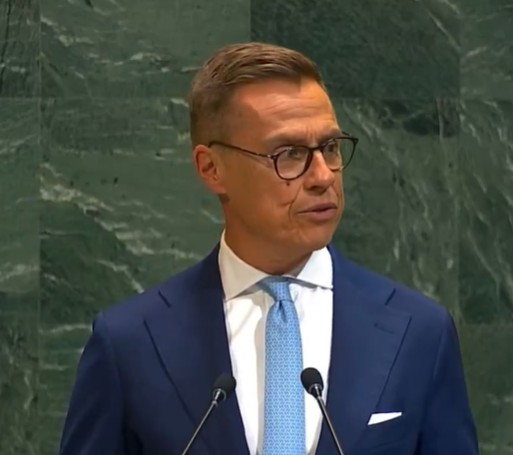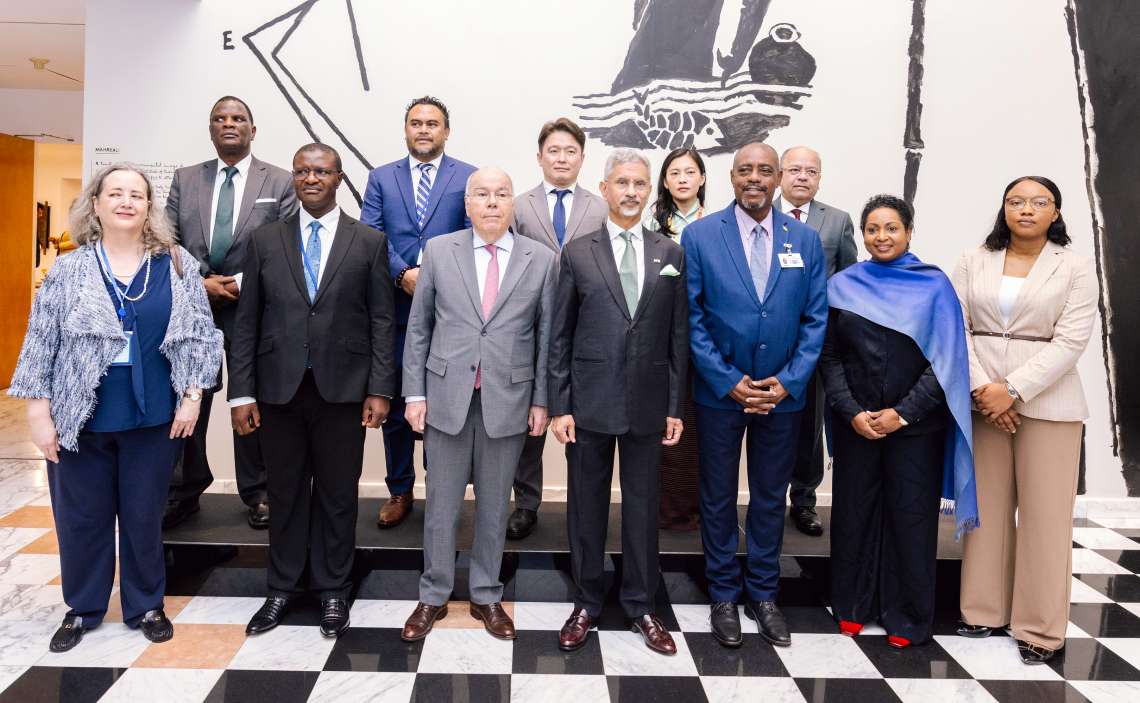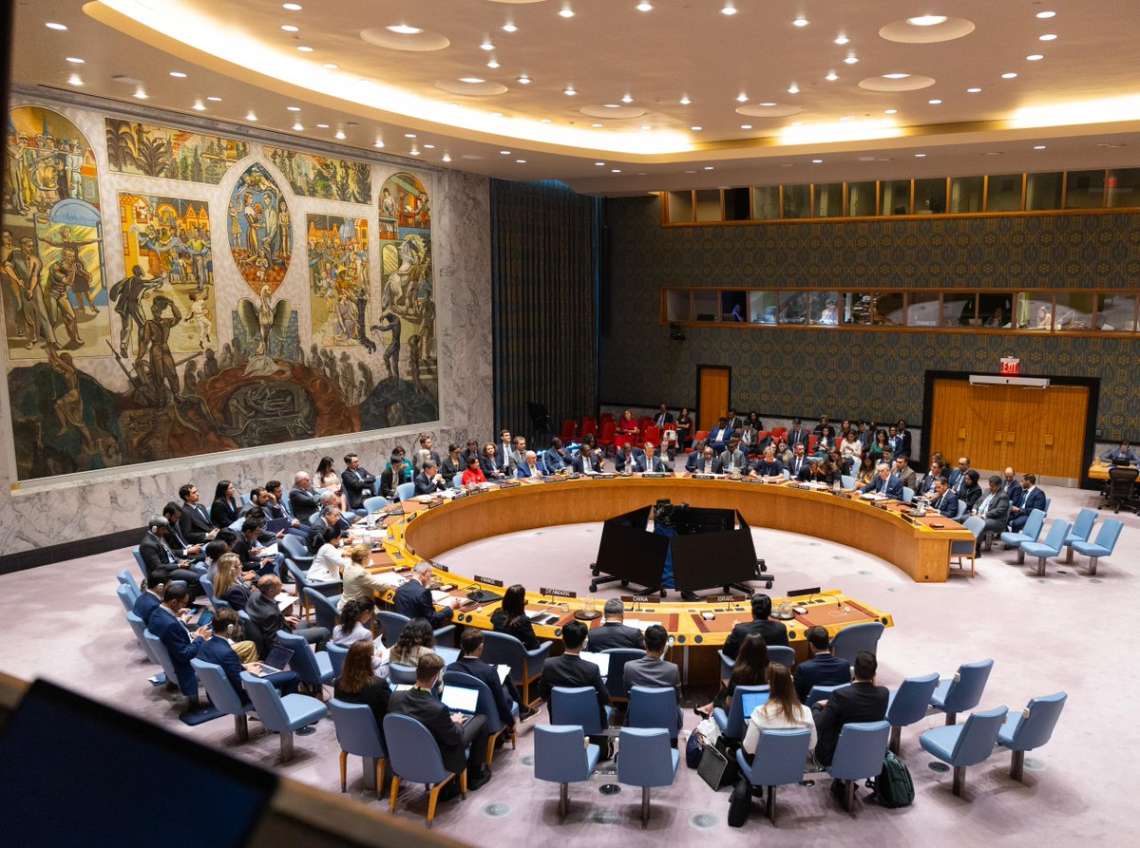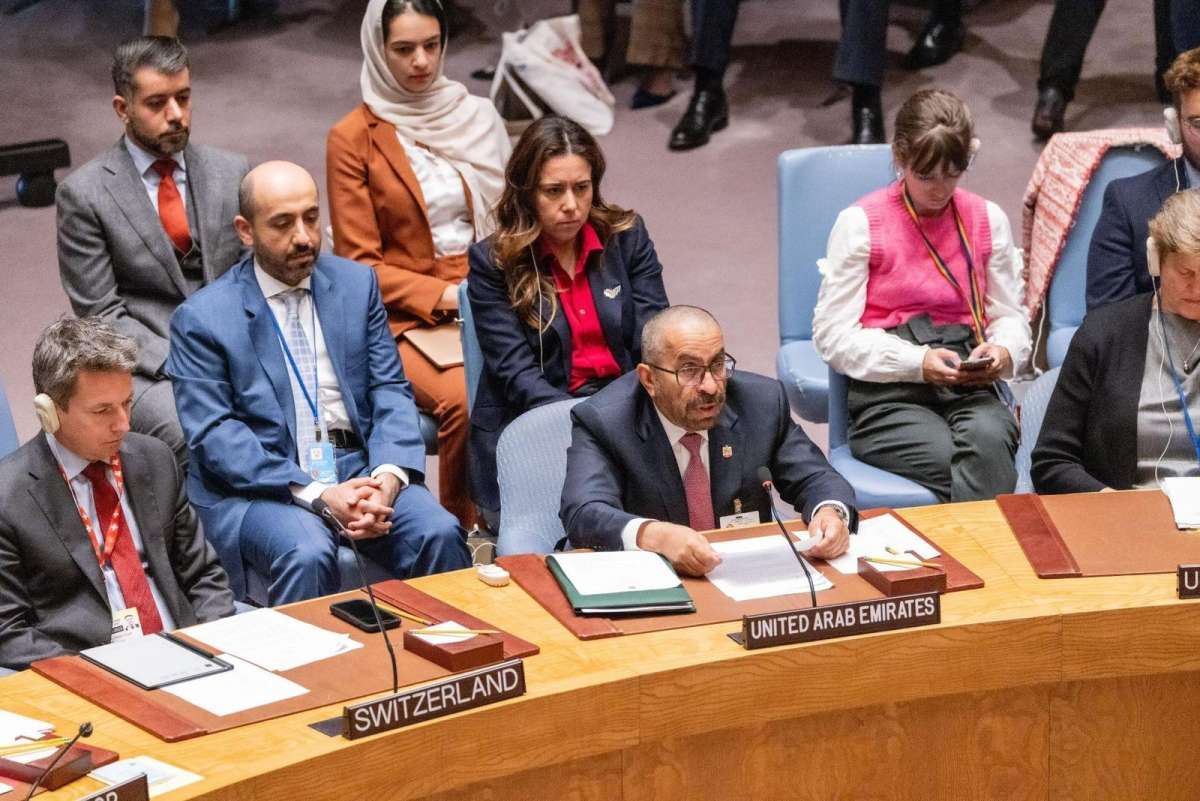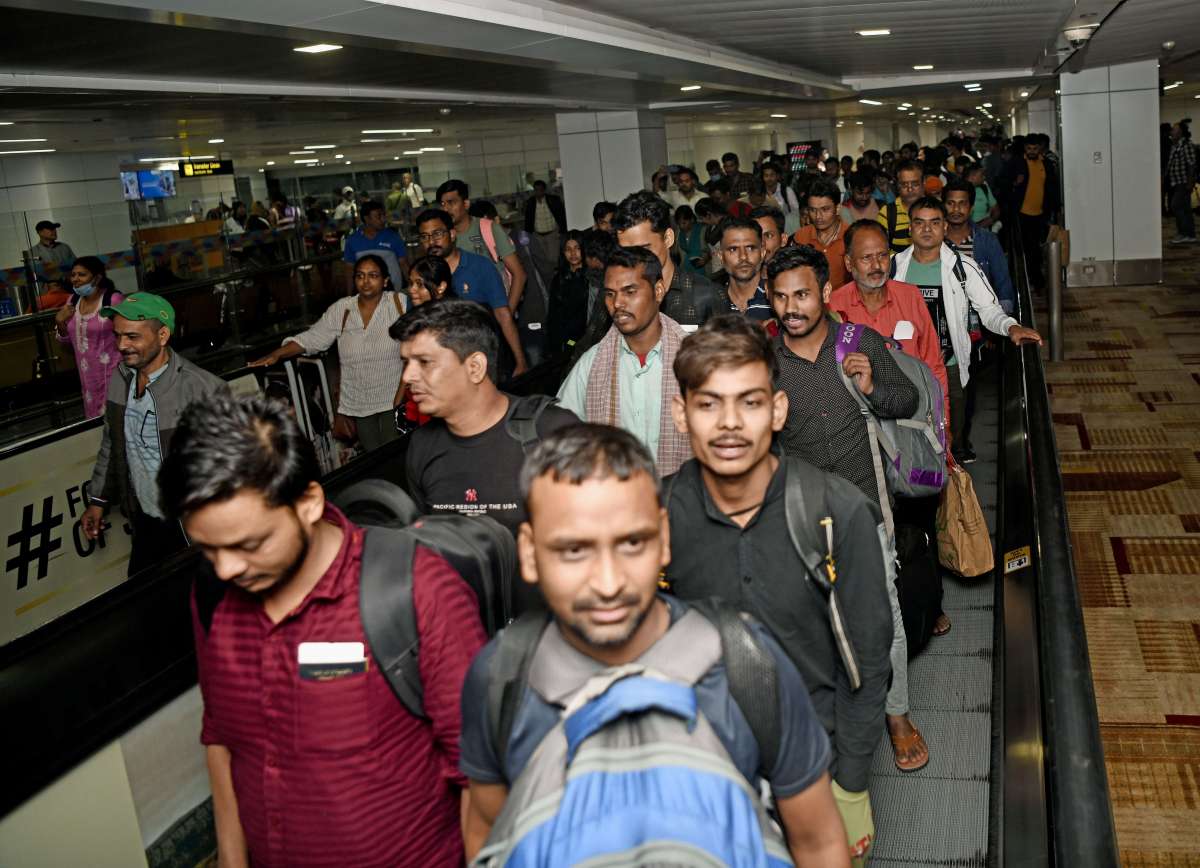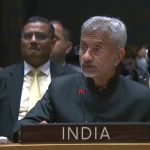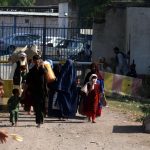Russia’s Foreign Minister Sergey Lavrov backs India and Brazil for permanent seats on a reformed Council, reports Arul Louis
A template for reforming the UN Security Council to meet the new global realities could be something that reflects the G20, says Russia’s Foreign Minister Sergey Lavrov.
In the multipolar world that is emerging, “there will be a need to initiate Security Council reform”, he said. “And possibly, ultimately, this could be something having to do with reflecting the composition of the G20 or something reminiscent of G20,” he said.
G20 is the group of developed and emerging economies with 19 countries and the European Union.
Lavrov said that “definitely” the under-representation of the African and Latin American countries in the Security Council has to be “eradicated”.
India, Brazil, Japan and Germany, which together form the G4 group that is at the forefront of campaigning for Council reforms while mutually supporting each other for permanent seats, are members of the G20 that is currently headed by India.
Russia backs India and Brazil for permanent seats on a reformed Council. There are no Latin American or African countries in the ranks of the permanent members of the Security Council, while the only Asian country to enjoy that status is China.
When he suggested a G20 type of format, Lavrov also said that in developing a governing mechanism for a multipolar world “it’s wiser to base ourselves on the UN Charter with the understanding that in order to reflect new trends to reflect the realities, there will be a need to initiate Security Council reform”.
Lavrov said that the US and the West were against a multipolar world and wanted their dominance to continue.
Although he did not know what shape it would ultimately take, he said that a sign of the emergence of the multipolar world is the recent visit of French President Emmanuel Macron to China.
A joint statement issued during Macron’s China visit this month endorsed the idea of a multipolar world and in interviews, he has suggested developing “strategic autonomy” for Europe.
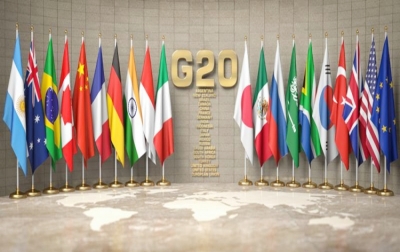
India invited to join regional group on Afghanistan
Russia’s Foreign Minister Sergey Lavrov has said that India has been invited to join the core group of four countries neighbouring Afghanistan that say they seek to bring stability there.
The Quartet of Russia, China, Pakistan and Iran has been working together on Afghanistan “and we invited India as well” to join making it a quintet, he said at a news conference at the UN in New York on Tuesday.
“We want this Quintet to be constituted as something of a core for the format of neighbouring states,” he said.
The foreign ministers of the Quartet met in Samarkand in Uzbekistan earlier this month under the chairmanship of China’s Foreign Minister Qin Gang and offered to cooperate with the Taliban regime in reconstruction and in economic matters.
But the ministers also expressed concern over the presence of terrorist organisations in Afghanistan that “continue to pose a serious threat to regional and global security”.
Iran’s Foreign Minister Hossein Amir-Abdollahian was at the meeting, while Pakistan was represented by Minster of State Hina Rabbani Khar.
Their statement included criticism of the West that said that “the NATO countries should bear primary responsibility for the predicament in Afghanistan” and should immediately lift sanctions on Afghanistan and return its frozen assets.
Posing a dilemma for India in joining a “Quintet” is that the four countries in the Quartet have the makings of a distinct anti-West grouping and two of them, Pakistan and China are hostile to New Delhi.
Lavrov said that while the Taliban regime, which has no international recognition, is a “reality on the ground and there’s a need to talk with them”, Russia will not recognise it “until they comply with (and) honour their own pledges”.
He made political inclusivity that extends beyond ethnicities to political groups a condition.
They will have to “ensure inclusivity in the governing structures, not just inclusivity at the ethnic level, but also at the political level”, he said.
While they include minorities like Hazaras, Tajiks and Uzbek they are all members of the Taliban, and “it is very important for there to be strong representation and political forces”, he added.
There is also the issue of human rights, including the rights of women and girls, he said.
These issues will be discussed at a meeting of special representatives for Afghanistan convened by Secretary-General Antonio Guterres in Doha next month, he added.


